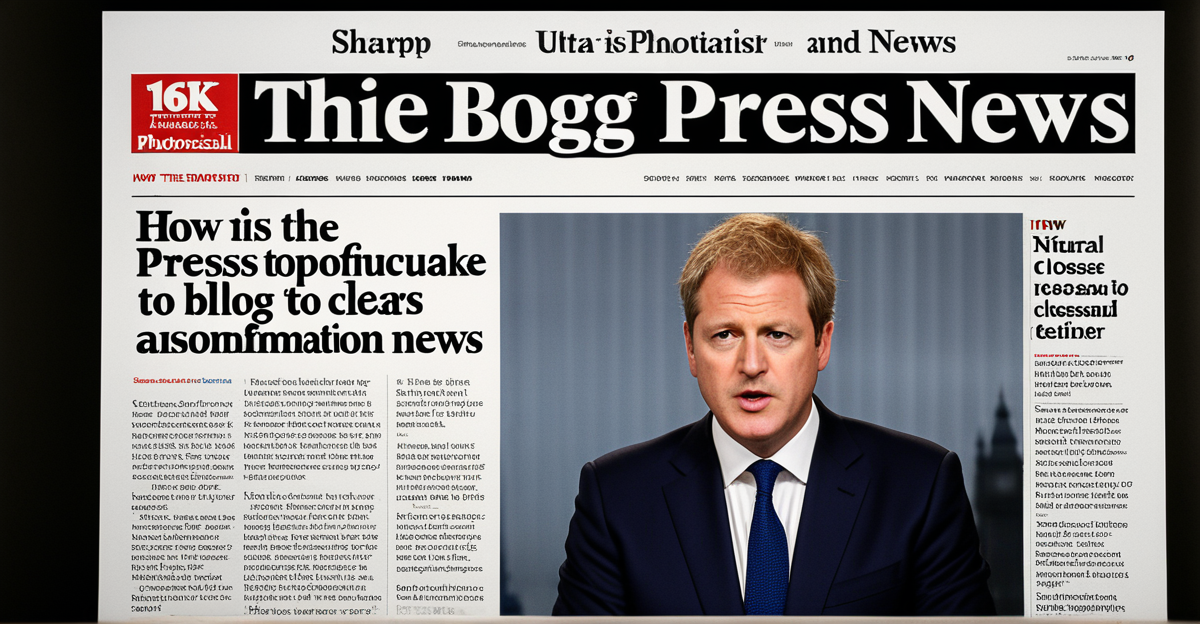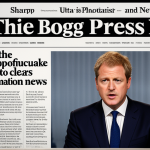Strategies of the UK Press to Combat Misinformation and Fake News
The UK press misinformation strategies have increasingly focused on robust internal measures. Many news organizations now employ dedicated in-house fact-checking teams tasked with verifying content before publication. This proactive approach ensures that combating fake news UK efforts start at the source, minimizing the risk of spreading disinformation.
Editorial policies have been tightened, incorporating mandatory staff training to help journalists recognize misinformation and implement verification protocols. These policies emphasize verification processes that identify inaccuracies early, supporting the credibility of UK newsrooms.
Also read : What Are the Implications of Emerging Trends in UK Politics?
Additionally, UK media responses include collaborative projects among major outlets to promote industry-wide standards. These initiatives foster information sharing and uniform practices, creating a united front in tackling misinformation. Through these combined efforts—fact-checking, training, and collaboration—the UK press strengthens its ability to combat fake news UK effectively.
Regulatory Bodies and Editorial Standards
Regulatory frameworks in the UK play a crucial role in combating fake news UK by establishing clear standards and enforcement mechanisms. Two primary bodies, Ofcom misinformation regulation and the Independent Press Standards Organisation (IPSO press standards), oversee adherence to accuracy and fairness in the UK press. Ofcom focuses largely on broadcast media but has expanded its remit to include online content, emphasizing the reduction of harmful misinformation.
Also to discover : How Might Recent Policies Impact the UK’s Role in Global Affairs?
IPSO press standards govern print and digital newspapers, holding outlets accountable through complaint procedures and sanctions. Their guidelines demand rigor in fact-checking and timely corrections, reinforcing the credibility of UK press misinformation strategies. Recent updates in these regulatory frameworks UK press efforts reflect heightened concerns about the spread of fake news, introducing stricter rules for transparency and faster responses to inaccuracy claims.
Together, Ofcom and IPSO’s standards and enforcement policies form the backbone of UK media responses to misinformation. By combining regulatory pressure with newsroom accountability, they ensure that combating fake news UK remains a priority within editorial practices and supports public trust in journalism.
Fact-Checking and Transparency Initiatives
In the UK press, fact-checking has become a cornerstone of efforts aimed at combating disinformation UK. Many media organizations now rely on dedicated fact-checking teams and collaborate with independent verification services to ensure accuracy. These partnerships strengthen the reliability of reporting, providing an additional layer of scrutiny before stories reach the public.
Transparency in journalism is vital. UK outlets openly share their fact-checking processes, explaining how they verify sources and data. When errors occur, clear correction mechanisms are promptly implemented, helping to rebuild trust and uphold the integrity of the news. This commitment to transparency plays a crucial role in UK press fact-checking strategies and enhances accountability.
Prominent platforms such as Full Fact offer independent assessments of news claims, frequently referenced by UK media to support their content. By integrating such fact-checking tools, the UK press demonstrates a proactive stance towards combating disinformation UK and sets standards for openness. These initiatives collectively improve public confidence and set a practical example for how the press can maintain accuracy in a fast-paced information environment.
Challenges and Ongoing Issues in Addressing Misinformation
Addressing UK misinformation issues presents a complex challenge for the press, particularly when balancing the imperative to combat fake news UK with the need to uphold press freedom. Journalistic independence relies on free expression, yet misinformation can spread quickly, demanding swift corrective measures without overstepping editorial autonomy.
One major difficulty lies in the rapidly evolving nature of misinformation. False narratives often adapt and mutate faster than newsrooms can verify or respond, complicating UK press misinformation strategies. Media experts highlight that real-time fact-checking is resource-intensive and not always foolproof, exposing weaknesses in current defenses.
Moreover, there is ongoing debate over where regulatory boundaries should lie. Some argue that stricter controls risk censorship and undermine trust, while others emphasize stronger oversight to protect public interest. These tensions underscore the delicate balance media organizations must navigate to effectively minimize false content while respecting democratic values.
Despite such challenges, ongoing improvements in technology, training, and collaboration signal progress. However, experts warn that addressing UK misinformation issues remains an evolving battle, requiring adaptable newsroom policies that prioritize accuracy and transparency without compromising journalistic integrity.
High-Profile Examples and Case Studies
Notable UK press misinformation case studies offer valuable insights into the effectiveness of current strategies in combating fake news UK. One prominent instance involved a widely circulated false report about voter fraud during a general election. UK media outlets swiftly identified discrepancies through in-house verification teams and publicly corrected the narrative within hours, demonstrating the importance of rapid response.
Another case involved misleading health claims that gained traction on social media. Several major newsrooms collaborated on fact-checking efforts, referencing trusted scientific sources to debunk erroneous information. This coordinated approach highlights how UK media responses utilize cross-outlet cooperation to reinforce credibility and curb misinformation.
These examples reveal that timely corrections and transparent communication are crucial in maintaining public trust. Moreover, they emphasize how lessons from past UK press misinformation case studies inform ongoing policy refinement and staff training. In practice, such cases stress the need for proactive measures, underlining challenges like misinformation’s speed and complexity.
By examining these recent fake news UK events, news organizations adapt their verification protocols and editorial oversight, steadily improving their ability to manage false content and uphold journalistic standards.




